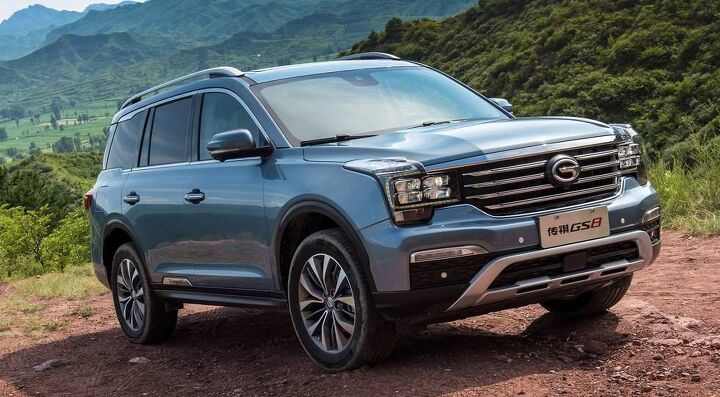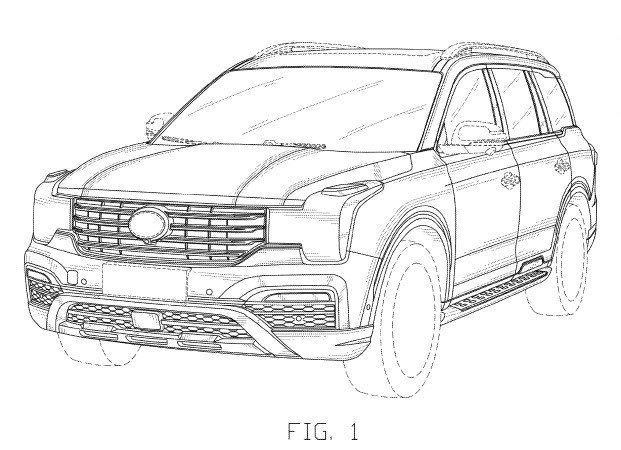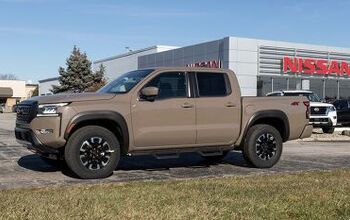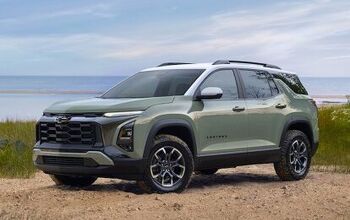Fiat Chrysler to Guangzhou: Swipe Right

Seven years ago, Fiat Chrysler Automobiles and China’s Guangzhou Automobile Group entered into a joint venture, forming a 50/50 partnership between the companies. Currently selling three locally produced Jeep models – the Cherokee, Renegade, and Compass – the JV also imports the Grand Cherokee and Wrangler. Last year, sales tripled to nearly 150,000 units.
Now, according to Automotive News, the parent companies are in discussions to deepen their tie-up in China. Talks are apparently focusing on models, production, and sales targets.
The world’s largest car market has a history of firmly enforcing its rules around joint ventures. In the past, foreign automakers were allowed to form JVs with state-owned Chinese partners but foreign ownership was limited to 50 percent. The goal was to develop a car industry quickly, learning from the foreign companies how to make cars while maintaining control of the burgeoning industry.
Now, the country is starting to relax some of those once-inflexible missives, as evidenced by the talk of Tesla reaching an agreement with the government of Shanghai to build a manufacturing facility in the city’s free-trade zone. In this case, Tesla would likely not be able to skirt the 25-percent import tariff, but it would save a bundle on shipping costs as they would no longer need to import vehicles from America.
If Beijing does reduce the JV restrictions, no matter how slightly, is will surely be in preparation to prevent foreign governments from citing those same restrictions as reason to apply their own limits on Chinese automotive exports.
The timing of all this is incredibly convenient, given that GAC’s brand Trumpchi is making loud noises about entering the American market in 2019. Plans apparently call for a sport-utility vehicle to be the first vehicle offered on our shores, currently manufactured as a seven-seat machine with a turbocharged 2.0-liter inline-four under the hood. Before that can happen, the company has to clear several regulatory hurdles — and decide on what brand name they’re going to stamp on the thing.
“We are very satisfied with our cooperation with FCA,” Guangzhou President Feng Xingya said in a Bloomberg interview. “We have yet to reach a conclusion on how to cooperate with FCA when we begin manufacturing in the U.S., and we have also not begun discussions with other Chinese automakers on whether to make cars together in the U.S.”
We’ll let you speculate on whether or not that may mean some Trumpchi products will be made in FCA plants stateside, and vice versa.
Can the Chinese brand break into the North American market? This author clearly remembers truckloads of Hyundai Ponys appearing in the mid-80s, all of them pre-sold and customers excitedly choosing the one they wanted by pointing it out to the salesman before it was even unloaded onto the pavement. Sure, most of them were reduced to iron-oxide filings before the end of the decade but, at the time, people were more than happy to fork over not a lot of cash for whole lot of car. Thirty years later, the Hyundai brand is still here, performing quite well and moving plenty of metal.
Perhaps we’ll be writing about Trumpchi in a similar tone once the calendar flips into 2047.
[Images: GAC]

Matthew buys, sells, fixes, & races cars. As a human index of auto & auction knowledge, he is fond of making money and offering loud opinions.
More by Matthew Guy
Latest Car Reviews
Read moreLatest Product Reviews
Read moreRecent Comments
- Corey Lewis It's not competitive against others in the class, as my review discussed. https://www.thetruthaboutcars.com/cars/chevrolet/rental-review-the-2023-chevrolet-malibu-last-domestic-midsize-standing-44502760
- Turbo Is Black Magic My wife had one of these back in 06, did a ton of work to it… supercharger, full exhaust, full suspension.. it was a blast to drive even though it was still hilariously slow. Great for drive in nights, open the hatch fold the seats flat and just relax.Also this thing is a great example of how far we have come in crash safety even since just 2005… go look at these old crash tests now and I cringe at what a modern electric tank would do to this thing.
- MaintenanceCosts Whenever the topic of the xB comes up…Me: "The style is fun. The combination of the box shape and the aggressive detailing is very JDM."Wife: "Those are ghetto."Me: "They're smaller than a Corolla outside and have the space of a RAV4 inside."Wife: "Those are ghetto."Me: "They're kind of fun to drive with a stick."Wife: "Those are ghetto."It's one of a few cars (including its fellow box, the Ford Flex) on which we will just never see eye to eye.
- Oberkanone The alternative is a more expensive SUV. Yes, it will be missed.
- Ajla I did like this one.



































Comments
Join the conversation
One thing's for sure: the Chinese car buyer has way way more choice to make in their vehicle purchasing decisions compared to the US. Not only do they have everything available here plus an Escort, but long wheelbase versions of this and that, and Peugeot, Renault and other Euro marques, and about 50 homegrown companies with multiple models. Sitting back here and pontificating about Chinese car quality is an errand for fools. Not a soul who posts here, including me, knows what the native Chinese vehicles are actually like to any depth, which makes have nice engines, interiors or which makes fall apart at the first opportunity. Some negative opinion dragged out of the fluff between someone or other's ears means nothing whatsoever. Might as well pontificate on restaurant quality at the US airbase at the South Pole, about they they know nothing either. Time to get some actual Chinese car enthusiasts to give us their perspectives. Be much too much trouble, I expect; people would rather pontificate and make "definitive" guesses.
conundrum-This is the Internet. Pontificating is what's it's all about. All forums would cease to exist if it wasn't for "pontification!". A restaurant that produces a bad product soon goes out of business. I don't think the Chinese will enter the U.S. market with the intent of going out of business-quite the contrary to capture market share. Hyundai was lucky-they got a second chance-if they were to enter the market today-I'm not sure they would get a second chance. The Chinese market vehicles are not going to imported to the U.S. The SUV concept shown seems to be for the U.S. market. I believe you know already GM is importing Chinese vehicles made by GM in China. Don't you think the Chinese competition already bought one of these and have taken it apart?